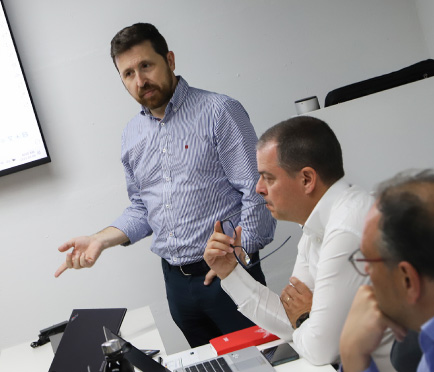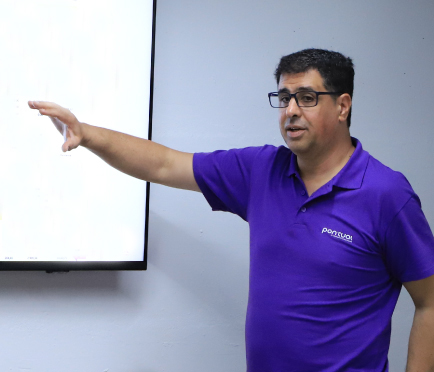The agri-food industry requires software that addresses a set of specificities to which a more generic ERP usually cannot respond. Learn in the article why MES software is an option to consider for agri-industry companies.
Although ERP (Enterprise Resource Planning) systems are widely used and offer many benefits, when not properly customized, they can present some limitations—particularly in the agri-food sector. Let’s see why MES software might be a more suitable solution for companies in this sector.
- Sector specificity
Specific compliance and regulatory requirements: Software adapted to the agri-food industry can meet all compliance and regulatory requirements of the sector, such as batch traceability, quality control, and specific certifications.
Production Management: MES software or a software solution tailored to this sector more easily addresses the complexities of primary production or the agri-food sector.
- Flexibility and customization
Adaptation to Specific Needs: MES software more easily adapts to the particularities of different types of agricultural production and food processing.
Implementation Time: Being a solution already adapted by default to the needs of the agri-industry, MES software will have a shorter implementation time. Whenever conditions and needs change, the speed of adaptations is also superior.
- Complexity of operations
Inventory and Logistics Management: Software tailored to the food industry covers a range of aspects related to inventory and logistics such as perishability, temperature control, or special transport requirements—something that does not happen in a more generic solution.
Production Planning: Production planning in this sector is influenced by a series of external factors that are also reflected in MES software.
- Integration with other technologies
Compatibility with sector technologies: While a more standard ERP may require a more complex degree of customization to integrate with agri-food technologies, such as IoT sensors and others, this integration is simpler with MES software.
Supply Chain Integration: Software designed for the agri-food sector encompasses complete integration along the production chain, from the field to the final consumer.
- Data Management and Analysis
Volume and variety of real-time data: The agri-food sector generates large volumes of diverse data that can be analyzed through MES software. Similarly, this type of software provides real-time data, enabling quick and informed decision-making.
- Traceability and Transparency
Batch Traceability and Food Safety: Detailed batch traceability and ensuring food safety are crucial in the agri-food sector, and as such, are reflected in the software. The same applies to transparency in the food chain, an aspect increasingly demanded by consumers and regulators, which is taken into account in MES software.
- Technological Update and Evolution
Keeping up with innovations: With the introduction of new technologies and practices, the agri-food sector is constantly evolving. Software providers for the agri-food industry closely monitor these changes and can more agilely reflect them in new software functionalities.
When considering the implementation of software for the agri-food sector, it is essential to look for solutions that can be easily customizable or specifically designed to meet the unique needs of this sector.
When companies already use base ERPs, the possibility of integration with MES software is essential to obtain a more personalized final solution capable of addressing the challenges of the area in question.
ERP and MES Software Integration in the Agri-Food Area
A smooth integration between ERP and MES allows real-time data synchronization, ensuring that information about production, stock, and other resources is always up-to-date.
Real-time monitoring and control with MES software like Flow M allows more agile production control, increasing efficiency and responsiveness, reducing the number of unforeseen stoppages and production delays.
Another strength of Flow M is its ability to ensure quality control through features that guarantee products meet required standards.
In conclusion, the more tailored software is to the sector in question, the more benefits companies will experience. Generally, there is an increase in operational efficiency, promoted by the automation of manual processes and error reduction, freeing up time for strategic activities. Additionally, there is better resource management, as the system helps optimize the use of machinery and labor, improving productivity.





